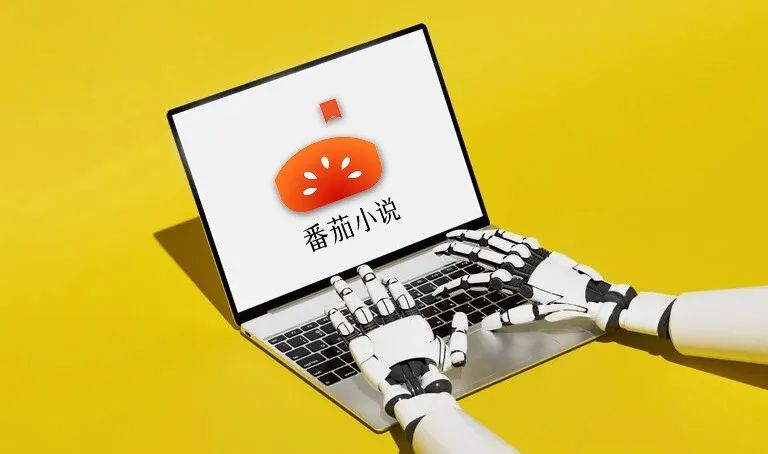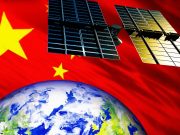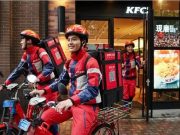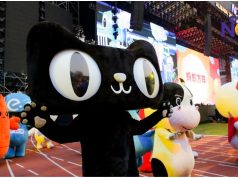(Singapore, 2025.10.9) China’s new regulation requiring online fiction platforms to mark out AI-generated content in authors’ works took effect on September 1. Public attention, however, only surged after a freelance writer questioned on social media how Tomato Novel (番茄小说) would treat his work under the rule.

Operated by ByteDance, Tomato Novel is an online platform where readers enjoy web novels and authors can publish and earn income. The issue has sparked intense debate on Longkong (龙空), a forum dedicated to Chinese web fiction writers.
In the post that drew attention, the author described submitting a piece of work on September 23 when Tomato Novel prompted him: “Did you use AI?” The message added: “If your work is created or generated using AI-related tools, please answer truthfully.” It also warned that dishonesty could result in the submission failing review.
The post quickly went viral. Some authors questioned whether the new rules would make a difference; others complained that AI-generated works might not attract readers. Many were uncertain if using AI to draft plotlines counted as AI use. Questions also arose regarding long works: at what point does AI involvement make a story “AI-generated”? Authors who rely heavily on AI to maintain multiple outputs simultaneously expressed concern that strict enforcement could disrupt their work.
Most, however, were focused on Tomato Novel’s next steps, wondering if answering “Yes” would reduce an author’s visibility on the platform.
On March 14, the Chinese government issued the Measures for the Identification of AI-Generated Content, which took effect on September 1. Article 6 mandates literature platforms to identify AI involvement and remind authors to automatically declare whether their content includes AI-generated portions. The fiction platforms Zongheng (纵横) and Qimao (七猫) had already implemented such labelling before Tomato Novel followed suit.
Haike Caijing (海克财经), a Chinese-language financial media outlet, noted that with generative AI widely adopted in writing now, how Chinese online authors use the tool has become one of the most debated topics in the community.
Being China’s largest online literature platform with low entry barriers for authors, Tomato Novel boasted over 240 million monthly active users as of June 2025, according to QuestMobile, a leading Chinese big data service provider. Haike added that Tomato has now become a key barometer for domestic trends and disputes in AI-assisted writing.
Demarcating AI-generated content signals the end of the “chaotic” phase of AI-assisted writing and nudges the industry toward self-generation standards. Yet Haike noted that Tomato Novel’s future direction remains uncertain.
China has already seen writers openly collaborating with AI. In June, the literary magazine October (十月) held an “AI Co-Creation Writing” contest, where author Ji Zhongxian (姬中宪) won the grand prize for his Fog and Crosswinds, co-created with the AI tool DeepSeek. Ji said he mainly used AI to trim and refine the text, reducing it from 25,000 to 5,000 characters, noting that AI did not hesitate to discard portions he valued.
To date, no prominent Chinese authors have raised copyright disputes with AI companies for using their works to train models, though many continue to monitor developments.
Tomato Novel in fact has launched AI-assisted writing tools in May 2024. Haike compared the various platforms and found Tomato Novel’s tools richer than Yuewen’s (阅文) and Qimao’s. They include functions for rewriting stories, expanding and continuing them, providing story outlines and synopses, and generating follow-up developments for stalled plots. Indeed ambitious, Haike remarked.
Another issue hit Tomato in March when a sudden tsunami of “new titles” coincided with DeepSeek’s January 2025 launch, suggesting a large influx of AI-generated content. On April 7, Tomato Novel announced plans to remove low-quality AI-generated content, highlighting its nuanced stance: AI-assisted writing can enhance efficiency, yet some authors exploit it to produce inferior works.
Chinese web fiction authors have flagged common defects in AI-generated novels: inconsistent character relationships, over-embellished sentences that hinder plot, alterations of characterizations, and elegant prose that lacks a sense of time. AI endings often include inexplicable or forced psychological descriptions. DeepSeek-generated novels frequently start with cryptic numbers or technical jargons.
Compared with Tomato Novel, established paid platforms like Jinjiang Literature City (晋江文学城) have taken a more cautious approach. In February, Jinjiang founder Huang Yanming (黄艳明) specified that AI may only be used for text proofreading, idea generation, and producing rough story outlines.
Currently, Tomato Novel’s AI-assisted writing direction has strayed from its original goal of empowering authors, instead creating additional complications for the platform. According to Haike, AI-assisted writing so far has not significantly helped Tomato increase supply of high-quality content.




































